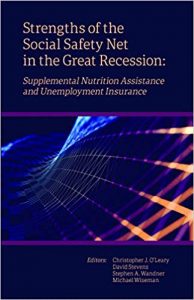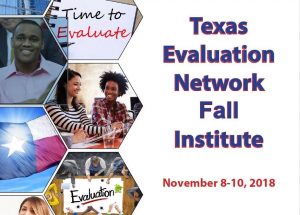| Principal Investigator: | Heath J. Prince, PhD |
| Sponsor: | Nuru |
| Project Duration: | April 2021 – February 2026 |
| Description: | The Ray Marshall Center will assist Nuru International’s M&E team with analyzing and reporting Nuru Ethiopia, Nuru Kenya, Nuru Nigeria, and Nuru Ghana’s impact. |
| Reports Available: | Nuru Ghana 2024 Baseline Report Impact Brief Authors: Thomas Boswell and Heath Prince (Ray Marshall Center); Matt Lineal, Casey Harrison, Ian Schwenke, and Bethany Ibrahim (Nuru); and Raphael Asuure, David Pwayidi, and Emelia AtayaRay (Nuru Ghana) Date: March 2025 Publication Type: Research Brief, 3 pp. This report is commissioned by Nuru. Nuru Nigeria 2023 Impact Report Nuru Kenya 2024 Baringo County Baseline Nuru Ethiopia 2023 Impact Report Nuru Burkina Faso 2023 Impact Report 2023 Nuru Kenya 2023 Dairy Impact Brief Nuru Nigeria 2023 Endline Impact Report Nuru Ethiopia 2022 Impact Report Nuru Kenya 2022 Dairy Report Nuru Ethiopia 2021 Impact Report Nuru Nigeria 2022 Short-Term Impacts Nuru Nigeria: 2021 Midpoint Impact Report 2019 Nuru Nigeria Baseline Report |
America’s Job Center of California Evalutation
| Principal Investigator: | Heath J. Prince, PhD |
| Sponsor: | Corporation for a Skilled Workforce |
| Project Duration: | June 2020 – April 2022 |
| Description: | With assistance from the California Workforce Association (CWA), the Corporation for a Skilled Workforce (CSW) and the Ray Marshall Center (RMC) of the University of Texas are partnering to evaluate the effectiveness of American Job Centers of California (AJCC) system using a mixed-methods and multi-part research design to achieve the objectives below:
– To understand how the four different models of service delivery in use in California affect a) overall access to services and, more importantly, b) the mix of services provided to the client population served. – To understand how investment decisions pertaining to AJCC infrastructure, staffing levels, and number of locations affect a) overall access to services and, more importantly b) the mix of services provided to the client population served. – To understand whether there is any relationship between participant program outcomes and the mix of services provided to the client population served. Do some models of service delivery and some types of investment decisions pertaining to AJCCs appear to be systematically related to participant program outcomes?
|
| Reports Available: |
Evaluation of CCCCO’s Financial Literacy Pilot Initiative webinar 9/17/19
On September 17, 2019, RMC researchers Ashweeta Patnaik, Cynthia Juniper, and Greg Cumpton conducted a webinar for the evaluation of the California Community College Chancellor’s Office’s Financial Literacy Pilot. The webinar was hosted by Ruby Nieto from the California Community College Chancellor’s Office. Attendees included representatives from the 16 colleges participating in the pilot.
The webinar provided a short overview of the evaluation of the CCCCO Financial Literacy pilot. Presenters discussed the evaluation goals, design, measurement approaches, data needs, and outputs of the evaluation. Presenters also shared lessons learned and best practices from evaluations of similar interventions. Attendees learned about how they could support the evaluation and the continuous improvement feedback they would receive from the evaluation. Attendees also had the opportunity to ask questions and receive clarifications from the evaluation team.
You can view presentation slides from the webinar here.
You can read more about RMC’s evaluation of the initiative here.

Evaluation of the Financial Literacy Pilot Initiative
| Principal Investigator: | Greg Cumpton, PhD |
| Sponsor: | California Community Colleges Chancellor’s Office |
| Project Duration: | July 2019 – June 2021 |
| Description: | The Ray Marshall Center is conducting an evaluation of the California Community College Chancellor’s Office’s Financial Literacy Pilot Initiative. Sixteen California community colleges are participating in this pilot. Participating colleges will send students money management tips via texts or emails over the course of ten weeks. Participating colleges will share individual-level data on program participants with RMC. RMC will analyze this data to assess the impact of CCCCO’s financial literacy pilot on student outcomes such as GPA, credit attainment, retention, graduation, and credential attainment. RMC will report on participant outcomes and perform a quasi-experimental evaluation of the program. |
| Reports Available: | Evaluation of the CCCCO Financial Literacy Pilot Final Report Authors: Ashweeta Patnaik, Greg Cumpton, and Cynthia Juniper Date: May 2021 Publication Type: Report, 67pp. Evaluation of the CCCCO Financial Literacy Pilot: Year One Annual Report Evaluation of the CCCCO Financial Literacy Pilot Interim Report |
RMC researchers co-author chapter in newly published Upjohn Institute for Employment Research book
RMC researchers Daniel Schroeder and Ashweeta Patnaik are co-authors of a chapter entitled “SNAP and UI as Components of a Joint Safety Net in Texas” in the book, Strengths of the Social Safety Net in the Great Recession : Supplemental Nutrition Assistance and Unemployment Insurance, published in August 2019 by the W.E. Upjohn Institute for Employment Research.
The book is the culmination of the multi-state Administrative Data Research and Evaluation (ADARE) Alliance’s Supplemental Nutrition Assistance Program (SNAP) Study, funded by the U.S. Department of Agriculture’s Economic Research Service (USDA ERS). The book is the first to use administrative data to look at how the SNAP and Unemployment Insurance (UI) programs worked together during a period of crisis in the economy and the labor market. The contributors in this book use administrative data from around the time of the Great Recession in six states – Florida, Georgia, Maryland, Michigan, Missouri, and Texas. In chapter 10, authors Daniel Schroeder and Ashweeta Patnaik examine SNAP and UI interactions in Texas during the years of the Great Recession, as well as the Great Recession–era experience of SNAP beneficiaries who are able-bodied adults without dependents (ABAWDs). The book contributors also recommend ways that the program policies could be altered to better serve those suffering hardship as a result of future economic downturns. An open access copy of the book is available for download from Upjohn Press.

Texas Energy Poverty Research Institute free webinar on Friday August 23, 2019
Please join us for a free webinar “Building a Better Understanding of Texas Low-Income Communities and Energy” hosted by the Texas Energy Poverty Research Institute (TEPRI) on Friday, August 23rd at 11am CST. RMC’s Dr. Heath Prince is one of the four featured speakers, and the webinar focuses on the results the Texas Low-Income Community Profile Series first installment, The Texas Overview (details below). Heath’s Policy Research Project class at the LBJ School of Public Affairs contributed to the research for TEPRI’s project. You can register here.
Details:
Understanding dynamics at the intersection of poverty and energy affordability is critical to designing strategies to effectively develop lasting energy solutions for low-income communities. In this webinar, we will discuss the interplay between energy poverty and economic hardship, demographic traits, quality of life, energy behaviors, housing type, and household composition. Our speakers will present the results of the Texas Low-Income Community Profile Series first installment, The Texas Overview. The objective of this series is for data and insights to be utilized by members and stakeholders to increase effectiveness of low-income energy programs and reduce barriers to outreach and education.
Key discussion items:
- Owner-occupied households are a meaningful energy poverty reduction target
- Low-income customers are engaged with energy, just not with programs
- Low-income Texans make difficult trade-offs to balance the disproportionate amount that they spend on energy
- Energy burden is a useful metric, but not a sufficient signal of energy poverty
Featured Speakers:
John Hall, Director of the Texas Energy Program at the Environmental Defense Fund (EDF); Dana Harmon, Executive Director of TEPRI; Jacqui Moss, Research Fellow at TEPRI and the lead author on the Texas Overview Report; and Heath Prince, Director and Research Scientist at RMC.
To view the report being discussed during the webinar, go here. You can also view the PRP class report here.

Summer Melt Follow-up
| Principal Investigator: | Greg Cumpton, PhD |
| Sponsor(s): | Harvard University |
| Project Duration: | January 2019 – June 2019 |
| Description: | The Ray Marshall Center will work with local Independent School Districts to collect and manage data across multiple systems, ensuring data integrity and consistency for regional participants. This work may include direct collection of non-administrative data from students using an on line survey, depending on district preference and capacity to collect such information on-site. Regardless, the Center will coordinate with local ISDs to ensure consistency across surveys. Outcomes will be collected on participating and non-participating students using National Student Clearinghouse (NSC) data. The Center will coordinate with local ISDs to submit a file to NSC. The Center will process the return file, de-identify the individual-level data and provide this information to the evaluation team at Harvard University.
Original project Summer Melt-IES: Digital Messaging for Improving College Enrollment and Success can be viewed here. |
| Reports Available: |
Central Texas Talent HUB
| Principal Investigator: | Greg Cumpton, PhD |
| Sponsor(s): | Greater Austin Chamber of Commerce and Lumina Foundation |
| Project Duration: | January 2018 – December 2018 |
| Description: | Many former college entrants interrupt their education prior to completing their degree, either dropping out completely or later returning to college. These non-completing individuals have college experience, familiarity with the application process, college credits, and knowledge of course enrollment procedures. These individuals represent a source of ready and readily accessible potential workers to whom the region could support to re-enter and complete college, increasing the labor pool of those possessing critical skills and knowledge needed in the local labor market. With direct contact information collected while in college and a repository of information about them, the Austin community intends to target this population for re-enrollment through advertising and other outreach efforts.
Researchers seek to examine stop-out patterns, barriers leading to stop-out behaviors, and assess potential solutions to re-enroll students, eventually measuring the extent to which these efforts increased the number and share of individuals returning to and completing college. |
| Reports Available: |
RMC researchers present at Texas Evaluation Network’s fall institute in Austin
On November 9th, Director Dr. Heath Prince facilitated a presentation by Associate Director Dr. Greg Cumpton on Propensity Score Matching (PSM) at the Texas Evaluation Network‘s second evaluation institute. Held at the First Baptist Church of Austin from November 8-10, 2018, the Fall 2018 Evaluation Institute brought together people who are interested in learning more about evaluation, program staff who want to learn how to do evaluations in their organizations, evaluation professionals who want to improve their skills in evaluation, and anyone who wants to network with others who use evaluations to improve lives, communities, and organizations. Dr. Cumpton’s presentation was part of a 3-hour long session providing attendees with the basics of PSM, equipping them with tools sufficient to begin using PSM at their home agencies and organizations. You can view the presentation here.

Dr. Prince and Ms. Patnaik participate in panel at annual AEA conference
RMC researchers Dr. Heath Prince and Ms. Ashweeta Patnaik attended the American Evaluation Association‘s annual conference in Cleveland, Ohio. This year’s conference, Evaluation 2018: Speaking Truth to Power, was held at the Huntington Convention Center of Cleveland from October 29th through November 3rd and brought together evaluators, evaluation scholars, students, and evaluation users from around the world to assemble, share, and learn from the successes of the international discipline and practice of evaluation. Dr. Prince and Ms. Patnaik participated in a panel on November 2nd on Assessing Exit: How to Gauge the Capacity of Local Community Development Efforts to be Self-Sustaining. Dr. Prince chaired the panel while Ms. Patnaik presented and discussed RMC’s Review and Redesign of the Leadership Sustainability Index for Nuru International.


